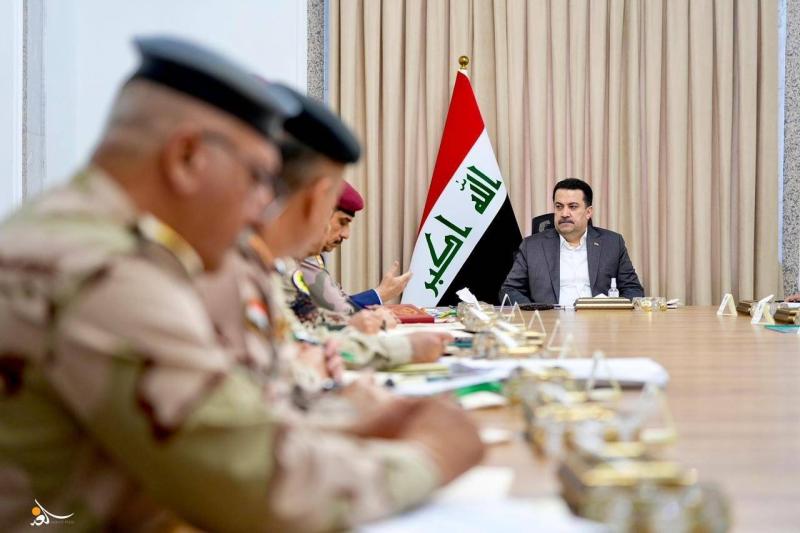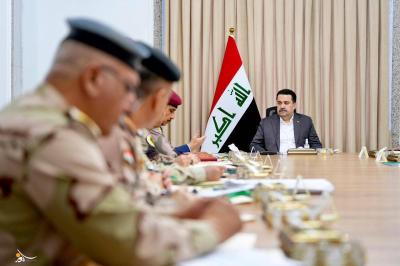The relationship between the Iraqi government and the Kurdistan Regional Authorities is experiencing rising tensions following recent judicial decisions that were denounced by Erbil.
After decades of disputes and devastating conflicts, the federal authorities in Baghdad are taking advantage of a relatively stable period in the country to reinforce their control over the autonomous Kurdistan region of Iraq and reshape their relationships with the region, according to experts and political officials. The increasing tensions between the Iraqi government and the Kurdistan authorities are mainly related to recent court rulings denounced by Erbil, which has historically received support from Washington and other Western countries, viewing the rulings as aimed at "undermining its powers."
The recent tension primarily revolves around issues related to oil exports from the region, the payment of salaries to employees of its official institutions, as well as local legislative elections—issues that have poisoned the relationship between Baghdad and Erbil for decades. Last month, the Kurdistan Region Prime Minister Masrour Barzani stated, "There are many plans aimed at undermining the entity of the Kurdistan Region by all means," emphasizing that "the establishment of Kurdistan was not a gift or a favor, but rather the result of a long struggle."
Barzani belongs to the largest party in the Kurdistan Region, the Kurdistan Democratic Party, which holds a majority in the local parliament, and has historically been in conflict with the Patriotic Union of Kurdistan, the second-largest party in northern Iraq. While other Iraqi regions have experienced successive disputes and crises for decades, the Kurdistan Region, which has enjoyed autonomy since 1991, has presented itself as an oasis of stability and economic prosperity. However, all Iraqi regions face similar problems such as widespread corruption, political divisions, and ruling elites.
Despite an improvement in the situation between Baghdad and Erbil after the appointment of Prime Minister Mohammed Shia al-Sudani in late 2022, the relationship has become complicated again, as it seems that some political parties supporting the current government have started to reassess their positions on it. The current federal government is mainly supported by the "Coordinating Framework," a coalition of Shiite parties that holds a majority in the Iraqi parliament.
In February, the Federal Supreme Court, the highest judicial authority in Iraq, mandated Baghdad to directly pay the salaries of government employees in the region instead of routing the funds through local authorities, which have often delayed disbursements. On the same day, it issued a ruling to reduce the number of seats in the Kurdistan Parliament from 111 to 100, effectively eliminating the seats allocated for minorities. Deputies from the Patriotic Union of Kurdistan and lawyers in Sulaymaniyah, the party's stronghold, filed complaints to the court.
These rulings prompted the Kurdistan Democratic Party to announce a boycott of the local legislative elections scheduled for June 10, a move that raises fears of another postponement of the vote, which was supposed to take place in 2022. The judicial decisions have intensified existing tensions between Erbil and Baghdad over oil exports from the region. The Kurdistan Region had independent sources of funding from its oil exports through Turkey for years, which were carried out without the approval of the central government. However, since March 2023, those exports stopped due to a ruling by the arbitration body in the International Chamber of Commerce in Paris, which ruled in favor of Iraq in its dispute with Turkey regarding this matter.
Erbil subsequently agreed to allow the region's oil sales to pass through Baghdad in exchange for receiving a share of the federal budget, but the agreement has yet to be implemented. The competition between the Kurdistan Democratic Party and the Patriotic Union of Kurdistan, which maintains a more amicable relationship with Baghdad, has long shaped the politics of the region. During a meeting with deputies from the Patriotic Union of Kurdistan, Sudani stressed last month the necessity of "starting to finance the region according to the Federal Court's decision." Additionally, the meeting emphasized the need to "continue dialogues" between Baghdad and Erbil "regarding common files, and for the resolutions to be according to what is stipulated in the constitution."




